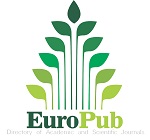Cultivating Aesthetic Competence: Literature's Role in Language and Cultural Education
Abstract
The aim of the research is to find out the shifts in the strategies of foreign language learning and teaching as well as the aesthetic competence concerning the romance literature that could be beneficial for intercultural communication. It becomes a tasking challenge for educators to find interesting sections in multi-media that meet the new demands for multilingualism in learning institutions. What was previously practiced as using and recommending a text book is now an ‘integrated approach’ to literature, where various authentic texts make learners use a more real life like language and encourages originality, analytical skills and language proficiency. However, while appreciating the positive effect literary interest has on student performance, there are still drawbacks with regard to students’ response and behavior with reference to literature. Therefore, this study raises its voice calling for an expansion of the definition of literature to embrace printed words together with graphics and visuals such as those used in graphic novels and comics in the enhancement of educational delivery. First, it posits aesthetics experience on which is understood as an individual’s capacity to identify and/or value texts in the learning process of the second language. It is within this context that the study concentrates on exploring the literature in the formation of this competence and its relevance to aesthetics in culturally diverse class environment which shapes the learning space and the intention of the educators. Finally, this study emphasize on the importance of using literature in language education to assist the students to understand, think and be informed on the cultural issues and interactions in multicultural society.
Keywords: Literacy, CEFR, Aesthetic, Literary and Cultural Literacy, Aesthetic Literacy, Foreign Language Teaching and Learning.











